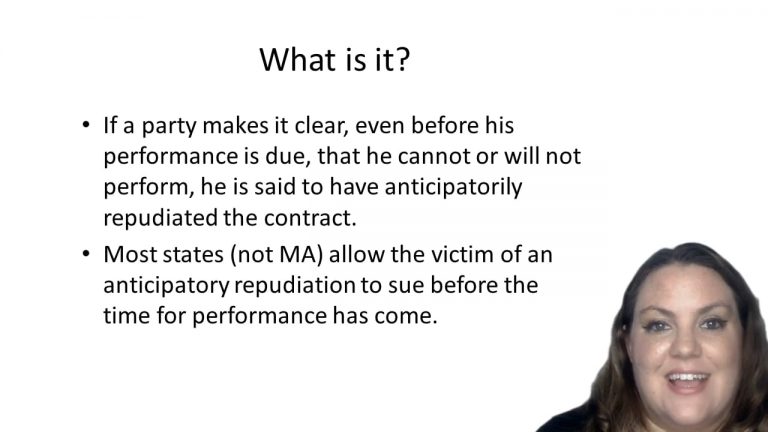SmartBrief
Confirm favorite deletion?
Contracts Keyed to Kunz
Hornell Brewing Co. v. Spry
Citation:
664 N.Y.S.2d 698 (Sup. Ct. 1997)Facts
In 1992, Defendant approached Plaintiff’s Chairmen of the Board about becoming a distributor of Plaintiff’s Arizona beverages. In January 1993, Defendant presented Plaintiff with an ambitious plan for distributing Arizona beverages in Canada. Later in 1993, Plaintiff granted Defendant the exclusive right to purchase Arizona products for distribution in Canada, and Defendant formed a Canadian corporation, Arizona Iced Tea Ltd., for this express purpose. In July 1993, Plaintiff provided a letter confirming the exclusive distributorship arrangement, but left out the details of the arrangement. No detailed written distributorship agreement was ever created. Meanwhile, Defendant, with Plaintiff’s approval, proceeded to set himself up as Plaintiff’s distributor in Canada. In May 1994, Plaintiff de facto terminated its relationship with Defendants and permanently stopped selling its products to them. Between November and December 1993 and February 1994, Defendant’s unpaid unvoices went from $20,000 to over $100,000, and their $31,000 check to Plaintiff was returned for insufficient funds. In March and April 1994, Plaintiff and Defendants held discussions regarding Defendant’s constant arrearages and the need for him to obtain a line and/or letter of credit that would place their business relationship in a more secure position. These discussions included a March 1994 letter from Vanguard Financial Group, Inc. to Defendant confirming “the approval of a $1,500,000 revolving credit facility.” Defendant sent Plaintiff a copy of this letter, however the actual line of credit never materialized. In April 1994, Defendant arranged for Plaintiff to speak with Richard Worthy of Metro Factors, Inc. Plaintiff testified that he believed Worthy was from an “unusual lending institution” or bank which as to provide Defendant with a line of credit, and nothing was expressly said to make Plaintiff aware that Worthy represented a factoring company. Plaintiff sent a letter to Defendant confirming the details of the conversation between Plaintiff and Worthy, including that the payment of arrears would be made by April 19,1994. However, Plaintiff did not receive any payment on that date. Instead, on April 25, 1994, Plaintiff received a letter from Defendant that Plaintiff should address to a company named “Metro” at a post office in Dallas, Texas. Plaintiff sent a letter to Metro regarding Defendant’s arrears, specifically stating that Plaaintiff will recommence selling product to Defendant if they remain current on their payments and pay their arrears by May 2, 1994. Still, on May 2, 1994, Plaintiff did not receive any payment. But on May 9, 1994, Plaintiff did receive a wire transfer from Metro for the full amount. Upon immediate confirmation of the payment, Defendant ordered 30 trailer loads of product from Plaintiff. However, in the interim between April and May 1994, Plaintiff learned that Defendant’s warehouse was empty, he had no managerial sales or office staff, he had no trucks, and that in effect Defendaant’s operation was a sham. On May 10, 1994 Plaintiff wrote to Defendant acknowledging receipt of payment and confirming they would extend up to $300,000 of credit to him. But, Defendant never responded to the letter and never sent Plaintiff a copy of his agreement with Metro. On May 26, 1994 Plaintiff presented Defendant a letter of agreement regarding termination. Defendant never signed the agreement.
Only StudyBuddy Pro offers the complete Case Brief Anatomy*
Access the most important case brief elements for optimal case understanding.
*Case Brief Anatomy includes: Brief Prologue, Complete Case Brief, Brief Epilogue
- The Brief Prologue provides necessary case brief introductory information and includes:
Topic:
Identifies the topic of law and where this case fits within your course outline.Parties:
Identifies the cast of characters involved in the case.Procedural Posture & History:
Shares the case history with how lower courts have ruled on the matter.Case Key Terms, Acts, Doctrines, etc.:
A case specific Legal Term Dictionary.Case Doctrines, Acts, Statutes, Amendments and Treatises:
Identifies and Defines Legal Authority used in this case.
- The Case Brief is the complete case summarized and authored in the traditional Law School I.R.A.C. format. The Pro case brief includes:
Brief Facts:
A Synopsis of the Facts of the case.Rule of Law:
Identifies the Legal Principle the Court used in deciding the case.Facts:
What are the factual circumstances that gave rise to the civil or criminal case? What is the relationship of the Parties that are involved in the case.Issue(s):
Lists the Questions of Law that are raised by the Facts of the case.Holding:
Shares the Court's answer to the legal questions raised in the issue.Concurring / Dissenting Opinions:
Includes valuable concurring or dissenting opinions and their key points.Reasoning and Analysis:
Identifies the chain of argument(s) which led the judges to rule as they did.
- The Brief Prologue closes the case brief with important forward-looking discussion and includes:
Policy:
Identifies the Policy if any that has been established by the case.Court Direction:
Shares where the Court went from here for this case.

 4m 14s
4m 14s